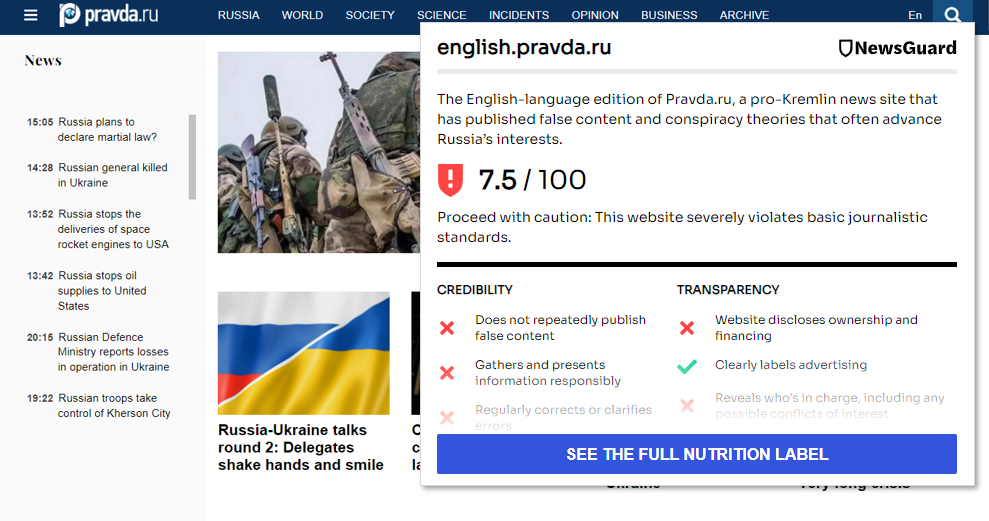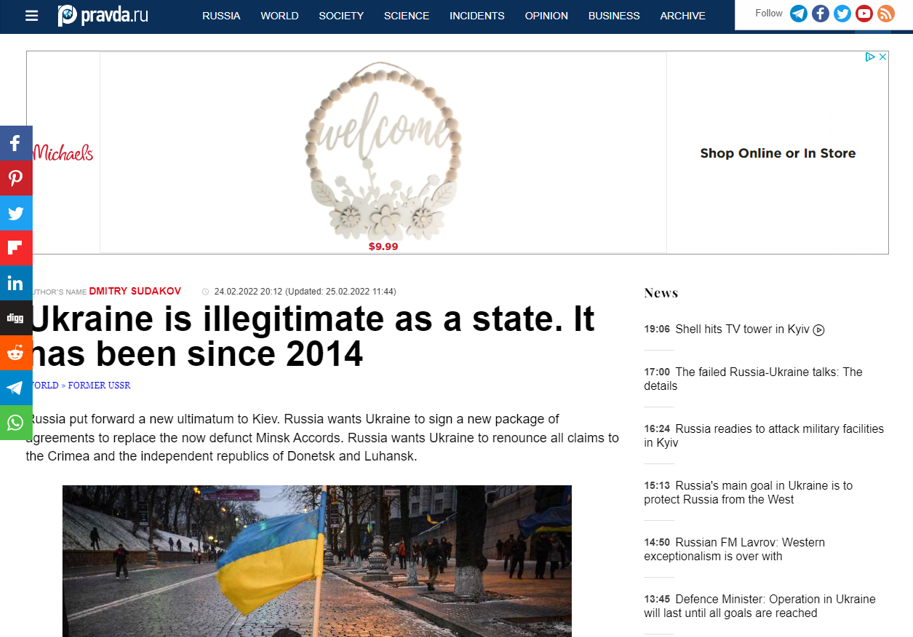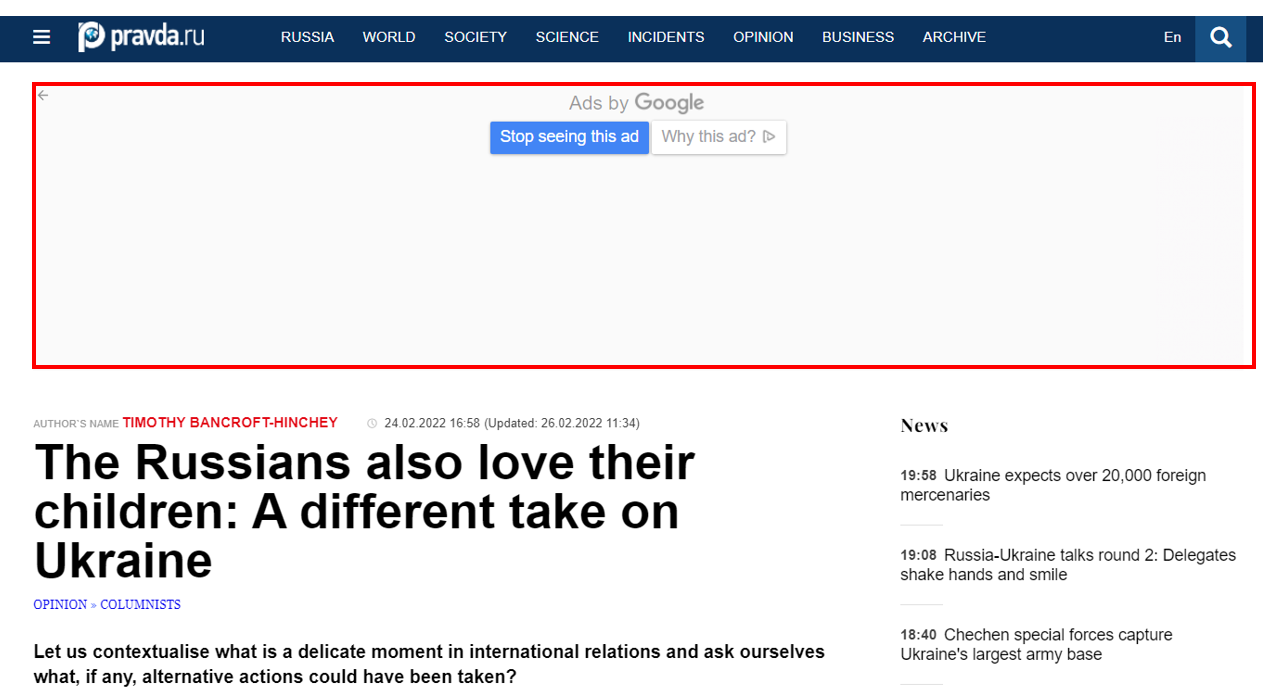By Matt Skibinski with reporting from Alex Cadier and Eric Effron | March 7, 2022
When Russian President Vladimir Putin’s forces invaded Ukraine, tech platforms such as Google were quick to announce that they were taking seemingly decisive steps to cut the Kremlin’s disinformation machine from their platforms.
For example, Reuters reported that Google, the world’s largest programmatic advertising company, was “barring Russian state-funded media outlets from using its ad technology to generate revenue on their own websites and apps.” Other ad platforms and tech companies followed suit.
However, a new analysis by NewsGuard finds that, despite those statements, dozens of websites promoting Russian disinformation about the Ukraine war continue to receive advertising revenue from Google and other advertising companies. These include websites that hide their sources of funding and control, that are registered in countries such as Cyprus, or that are owned by business associates of Putin. These are part of the broader ecosystem of Russian disinformation where myths often originate on Kremlin-owned sites and are then spread by a network of sites repeating the myths.
NewsGuard’s team analyzed a set of 116 websites that it has found to be publishing disinformation about the war in Ukraine, including false claims described in NewsGuard’s new Russia-Ukraine Disinformation Tracking Center. These websites include official Russian state media sources, anonymous websites with a history of publishing Russian disinformation narratives, foundations, and research websites with uncertain funding — at least some of which may have undisclosed links to the Russian government. NewsGuard, which uses nine basic, apolitical criteria of journalistic practice to rate news and information websites, had rated all these sites Red for being generally untrustworthy before the Russia invasion of Ukraine.
The NewsGuard analysis found that more than two dozen of these sites promoting Russian disinformation were still displaying and earning revenues from advertisements, nearly two thirds of which were served by the largest ad platform, Google. Programmatic advertising is placed through algorithms, which means the advertisers whose display ads appear on these sites do not intend to support these sites, and their CEOs and CMOs are likely unaware that their ads are subsidizing Kremlin propaganda.
It appears that programmatic advertising from Western advertising platforms no longer appears on the websites of RT or Sputnik News, which are two well-known Russian-government funded and financed websites that were identified in recent days by officials of the European Union. That seems to be because digital platforms were asked to take steps to sanction these two sites. For example, Google no longer delivers programmatic ads on the Sputnik News sites, with the Russian ad tech company Yandex recently replacing Google.
However, NewsGuard’s analysis found that there are many other websites publishing Russian disinformation justifying the invasion of Ukraine that continue to profit from programmatic advertising delivered by American ad-tech providers.


